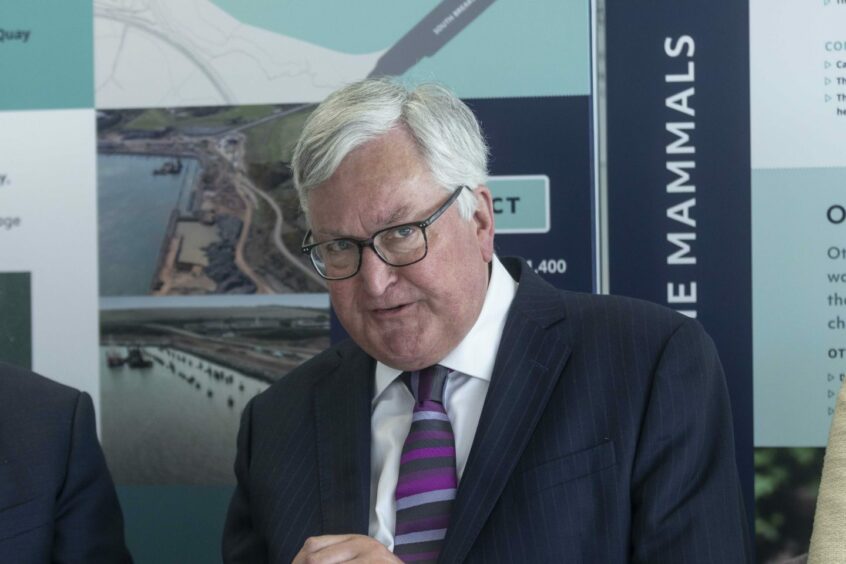
The former Scottish energy minister has called for the NSTA to be the “lead body” in a regulatory clear up for the North Sea.
Fergus Ewing, an MSP for Inverness and Nairn, formerly held the energy portfolio in Alex Salmond and Nicola Sturgeon’s Scottish Governments.
At an event in Aberdeen this week, he lamented there being “perhaps 10 or more different public bodies” regulating or playing a hand in decision-making for energy projects in the North Sea.
His suggestion was that the North Sea Transition Authority (NSTA) takes the lead.
He said: “Maybe there should be a lead body. Maybe it should be the NSTA and the other bodies feed into the NSTA (which) makes sure that timescales are adhered to.
“Because the risk is that good intentions are thwarted by complex processes and a plethora of government bodies all pursuing different aspects of the same thing.”
The comments echo a similar sentiment from NSTA chairman Tim Eggar last month, who described the UK sector as a regulatory “minefield” with the system no longer “fit for purpose”.
Alongside the raft of regulators are competing technologies for seabed space; such as offshore wind and carbon capture and storage.
Fergus Ewing made his comments as part of a cross-party declaration from five former ministers urging the UK and Scottish Governments to support the industry as it progresses through the energy transition.
The British Energy Security Strategy, published in April, sought to cut through red tape which is creating barriers to new energy projects, such as offshore wind.
Industry figures such as Sir Ian Wood and BP’s Louise Kingham have this week issued warnings of the “real danger of bureaucratic delays” linked to planning and regulation in achieving net zero.
Within the strategy, Westminster pledged to create “Gas and Oil New Project Regulatory Accelerators (GONPRA)” to provide “dedicated, named project support” to new upstream North Sea projects.
NSTA operations manager Scott Robertson recently told Energy Voice that work is well underway between the NSTA and OPRED.
He said: “We’re working with OPRED to look at the FDP (field development plan) EIA (environmental impact assessment) process to see where we can remove regulatory stickiness and be more efficient between the two of us.
“It’s always something the NSTA has done, we talk to operators very early on their concepts because it is more efficient for us to get involved at concept stage than it is to just wait for a field development plan.
“What we’ve now done though is we’re involving OPRED at concept select and there are meetings happening with NSTA, OPRED and the operators in relation to some early conceptual projects.”

